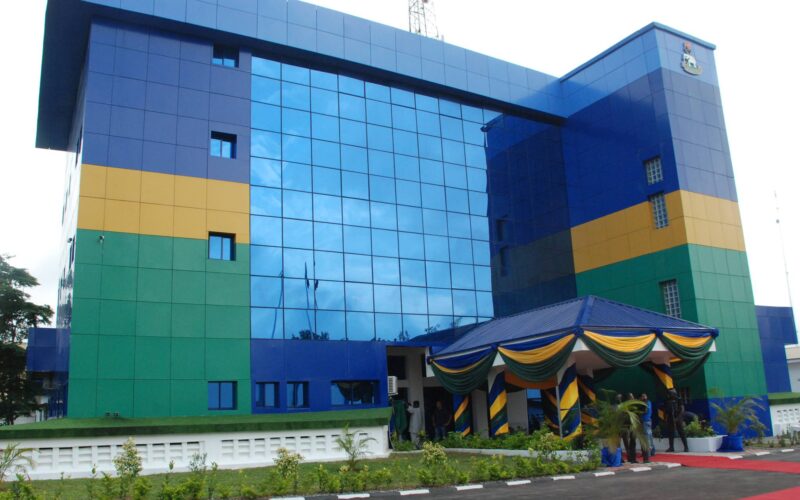In Abuja stands a cornerstone of law enforcement and justice: the Federal Criminal Investigation Department (FCID). As a pivotal arm of the Nigerian Police Force, the FCID plays a crucial role in maintaining law and order, investigating complex crimes, and ensuring justice prevails. Let’s explore the history, functions, structure, community engagement, and how you can access their services.
A Brief History of FCID
The Federal Criminal Investigation Department was established to centralize and professionalize the investigation of serious and complex crimes within Nigeria. Originating as a response to the growing need for a national investigative unit, the FCID has evolved into the country’s highest criminal investigation authority. Over the decades, it has expanded its capabilities to tackle emerging threats like cybercrime, terrorism, and financial fraud.
Upholding Law and Justice
The FCID serves as the investigative powerhouse within the Nigerian Police Force, handling serious and sensitive criminal cases nationwide. From financial fraud and cybercrime to homicide and organized crime syndicates, the department’s specialized units work tirelessly to gather evidence, apprehend suspects, and bring perpetrators to justice. Their operations are essential to the safety, security, and legal integrity of Nigeria.
Organizational Structure and Specialized Units
The FCID is structured into various specialized sections to address a wide array of criminal activities effectively:
- Administration Unit – Ensures effective management and coordination.
- Anti-Fraud Section – Combats financial and banking-related crimes.
- Central Criminal Registry (CCR) – Maintains comprehensive criminal records.
- Special Anti-Robbery Squad (SARS) – Handles armed robbery and related violent crimes.
- Special Enquiry Bureau (X-Squad) – Investigates police and public sector misconduct.
- General Investigation Unit – Tackles general and diverse criminal cases.
- Special Fraud Unit (SFU) – Focuses on sophisticated, high-value fraud cases.
- Legal Section – Provides legal advice and prosecutes offenders.
- Forensic Science Unit – Employs scientific methods and technologies.
- Interpol Liaison Office – Facilitates international crime fighting.
- Homicide Section – Investigates murder and suspicious deaths.
- Anti-Human Trafficking Unit – Addresses cases of human exploitation.
Each unit is staffed by experts trained to use modern investigative techniques and forensic tools.
READ MORE: How Much Is Nigeria Owning Other Countries?
Notable Cases and Achievements
Over the years, the FCID has been instrumental in solving high-profile cases. Notably, the department has cracked down on cybercrime rings operating across states, coordinated with Interpol to arrest international fugitives, and investigated major corruption scandals. These achievements underline FCID’s impact and underscore its reputation within global law enforcement.
Challenges and Ongoing Reforms
Despite its success, the FCID faces significant challenges:
- Limited funding for modern tools
- Public mistrust in law enforcement
- Need for continuous training and development
To address these, the department is undergoing reforms. Officers now receive regular training in ethics, legal compliance, and new investigative technologies. Oversight and accountability structures are also being improved.
Collaboration and International Cooperation
Recognizing that crime knows no borders, the FCID works closely with international law enforcement through its Interpol Liaison Office. It manages extradition processes, joint investigations, and intelligence-sharing on global criminal networks, particularly in human trafficking, cybercrime, and terrorism.
Community Engagement and Public Trust
The FCID isn’t just about solving crimes—it’s about preventing them. Through town hall meetings, media awareness campaigns, and school programs, the department promotes public education on crime and safety. These initiatives foster cooperation between citizens and the police, encouraging crime reporting and enhancing mutual trust.
Accessing FCID Services
For victims, witnesses, or concerned citizens seeking assistance or reporting criminal activities, FCID services are easily accessible.
Contact Information:
- Address: Moshood Abiola Road, Garki, Abuja
- Open: 24 Hours
- Emergency Lines: 07057337653, 08061581938
- Website: www.npf.gov.ng
You can visit the headquarters in person or report via official hotlines and online platforms.
Frequently Asked Questions About FCID Abuja
1. What is the FCID in Abuja?
It is the investigative division of the Nigerian Police Force responsible for handling major crimes such as cybercrime, fraud, homicide, and trafficking.
2. Where is the FCID located in Abuja?
The headquarters is located at Moshood Abiola Road, Garki, Abuja.
3. What types of cases does the FCID handle?
From financial fraud and organized crime to cybercrime and homicide.
4. How can I report a crime to FCID?
Call their emergency lines, visit the office in person, or contact them via their website.
5. Does FCID work with international agencies?
Yes, through Interpol and other global partnerships.
6. Is it safe for the public to approach FCID?
Yes. The FCID encourages citizens to report crimes and provides victim support services.
7. What reforms are being implemented?
Training on ethics, tech upgrades, and accountability mechanisms.
8. Does FCID provide legal or psychological support?
Yes. They partner with other agencies to offer these services to victims.
9. How is the FCID different from regular police divisions?
It specializes in high-profile and technically demanding cases.
10. Where can I get more info?
Visit www.npf.gov.ng or contact the headquarters directly.
Conclusion
The Federal Criminal Investigation Department in Abuja remains a vital force in the fight against crime. By combining expertise, professionalism, and public engagement, the FCID not only solves crimes but also helps shape a safer, more secure Nigeria. As Abuja grows and evolves, so too does the FCID’s commitment to justice, collaboration, and community trust.






